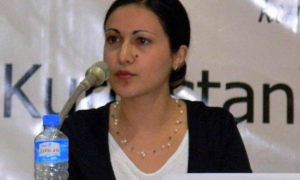TENSE OF THE VERB:
There are three main Tenses of the verb: the Present, the Past, the Future; as,
I eat the meal = Ez nan y di xuom (Present)
I ate the meal = Min nan xuard (Past)
I shall eat the meal = Ez nan y de^ xuom (Future)
The tense also, shows the ‘state’ of the action referred to whether
the action is, was or still going on (continous).
I am eating the meal = Ez ye^ nan y di xuom (Present continous)
I was eating the meal = Min nan di xuard (Past continous)
I have eaten the meal = Min nan ye^ xuardy (Presnt perfect)
I had eaten the meal = Min nan xuardy (Past perfect)
(A) SIMPE TENSES
(1) Present simple tense : I go = Ez di c,im
(2) Past simple tense : I went = Ez c,u^om
(3) Future simple tense : I shall go = Ez de^ c,im
(4) Future simple in the past : I sould go = Ez de^ bi c,im
(B) CONTINOUS TENSES
(5) Present continous tense : I am going = Ez ye^ di c,im
(6) Past continous tense : I was going = Ez di^ c,u^om
(7) Future continous tense : I shall be going = Ez ye^ de^ c,im
(8) Future continous in the past : I should be going = Ez ye^ de^ bi c,im
(C) PERFECT TENSES
(9) Present perfect tense : I have gone = Ez ye^ c,u^oym
(10) Past perfect tense : I had gone = Ez c,u^oym
(11) Future perfect tense : I shall be going = Ez ye^ de^ c,u^oy bim
(12) Future perfect in the past : I should be going = Ez ye^ de^ bi c,im
(13) Pluperfect tense : Ez c,u^o bu^om — There is no English equivalent
the time of the action is before
the Past Perfect.
(14) Past Pluperfect tense : Ez c,u^oy — There is no English equivalent
the time of the action is before
the time of Pluperfect.
(D) IMPERFECT TENSES
(15) Present imperfect tense: Ez ye^ c,u^om — There is no equivalent in
English. It denotes that the
action has just been started or
has been decided on to start.
(16) Past imperfect tense: Ez ye^ c,u^oy —There is no English equivalent.
It denotes indefinite past.
It is different from any other
past tense (simple, perfect .. etc.)
(A) SIMPLE TENSES:
The simple present tense denotes the the action of the verb takes place
at the present time.
The simple tense is formed from the infinitive form of a verb by using
the present tense preverbal temporal article ‘DI’.
* I eat the meal = Ez nan yi DI xuom.
In the negative form, the present preverb temporal article ‘DI’ is
substituted by the present negative article ‘NA’.
* I do not eat the meal = Ez nan y NA xuom
The interrogative of form of the verb is formed by either emphasising the
questioning tone of the speech or by changing the position of the subject
of the verb immediately to follow it, preceding the direct object.
* Do I eat the meal? = Ez nan y di xuom? = Di xuom Ez nan y?
* Do not I eat the meal? = Ez nan y NA xuom? = NA xuom Ez nan y?
The infinitive form of the verb : ‘to go’ =C,u^on
The present verb stem : C,i (C,)
Person Singular Plural
——————-
FirstEz di c,im = I goEz di c,i^n = we go
SecondTu di c,y = Thou goHu^ng di c,in = You go
ThirdEz di^ c,i^t=He(she) goesEw di c,in = They go
The infinitive form of the verb : ‘to eat’=Xuardin
Its present verb stem : Xuo
————————
Ez nan y di xuom=I eat the mealEm nan y di xuony = We eat the meal
Tu nan y di xuoy=Thou eat … Hu^ng nan y di xuon : You eat the..
Ew .. . di xuot=He(she) eat .. Ew … . di xuon : They .. …
The infinitive form of the verb : ‘to come’: Hatin
Its present verb stem: He^
—————————
Ez di he^m=I comeEm di he^yn = We come
Tu di he^y=Thou comeHu^ng di he^n=You come
Ew di he^t = He(she) comesEw di he^n=They come
The present stems of some verbs are not derived form, and therefore different
in their form and structure from their infinitive forms of their verbs; as,
The infinitive form of the verbThe present stem of the verb
—————————————————————
Di^tin = to seeB^in
Gotin = to sayBe^j
Bu^on = to beIm, em, e,i^n, in
SIMPLE PRESENT TENSE IN PASSIVE VOICE:
For the passive voice of the verb, the simple present tense is formed
by conjugating the verb ‘to come = Hatin’ followed by the complement
article ‘E’, preceding the infinitive form of the transitive verb in active voice.
PersonNumberActivePassive
—— —— ————-
FirstSingularEz mirov y di bi^nim Mirov di he^t e di^tin
=I see the man=The man is seen
SecondSingularEz te di bi^nimTu di he^y e di^tin
=I see you=You are seen
ThirdSingularEw wy(we^) di bi^ni^tEw di he^t e di^tin
=He(she) sees him(her)=He(she) is seen
FirstPluralEm mirovan di bi^ni^nMirov di he^n e di^tin
=We see the man=The men are seen
SecondPluralHu^ng me di bi^ninEm di he^yn e di^tin
=You see us =We are seen
ThirdPluralEm wan di bi^ni^nEw di he^n e di^tin
=We see them=They are seen
Ew me di bi^ninEm di he^yn e di^tin
=They see us=We are seen
Standard Kurdish Grammar by F. R. Akrawy, 1982

You must be logged in to post a comment Login
Leave a Reply
Для отправки комментария вам необходимо авторизоваться.









